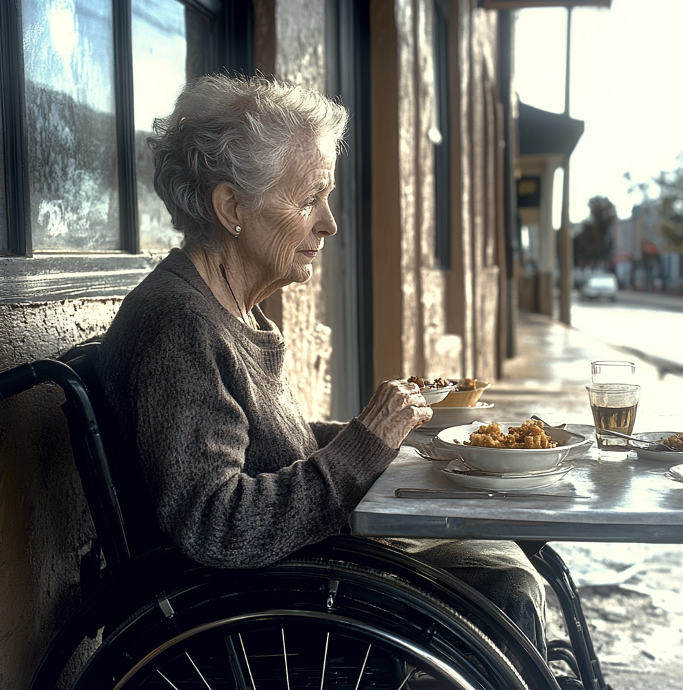
Living with a disability can shape your everyday experience. The smallest adjustments, from accessing public spaces to finding inclusive employment, can make a huge difference.
With their unique ability to provide targeted support, local communities play an essential role in ensuring residents with disabilities lead fuller, more independent lives.
Whether it's through simple acts like making sidewalks more accessible or larger efforts like preserving the autonomy of those with mobility challenges, these communities are often the backbone of true inclusion. But doing this well takes awareness, effort, and a commitment to recognize the needs of others.
If you're wondering how local communities support people with disabilities, the following offers a breakdown of accessible services, inspiring initiatives, and lessons from individuals working toward inclusion.
If you've ever rolled into a coffee shop or hardware store only to be met with steep stairs and narrow doorways, you know how frustrating it can be to tackle physical limitations while running basic errands.
Local businesses often set the tone for community accessibility. When these businesses prioritize accessibility, they make the world feel a little bigger for residents with disabilities.
Some businesses go above compliance with thoughtful design choices. For example, bookstores might create wide aisles and keep clutter at bay so wheelchair users can browse freely.
Meanwhile, cafes may not only install wheelchair ramps but also provide tablet menus or card readers placed at reachable heights for all. Even details like good lighting help visually impaired individuals get what they need without asking for help.
Accessible services also play a huge part. Grocery stores offering delivery options or pharmacies with drive-through medication pickup create flexibility for people facing mobility or medical challenges. These kinds of courtesies are quite common in the South. As the population ages, they tend to retire to warmer climates.
The move is for the weather, for Alabama disability benefits, as well as what’s available in neighboring states, and the accessibility and Southern charm.
These changes aren’t just conveniences - they're interventions that preserve independence.
Communities depend on these thoughtful adjustments to ensure no one is outright excluded or treated like an afterthought.
Your city's programming matters. A lot. Whether led by nonprofits, local government, or driven residents, community initiatives fuel much of the inclusivity residents with disabilities rely on.
For example, public libraries across the country host adaptive tech training sessions. This might mean teaching patrons how to use screen readers, tactile keyboards, and voice-to-text solutions.
Simultaneously, accessible sports leagues - think wheelchair basketball or sled hockey - help create opportunities for fitness, teamwork, and connections.
Transportation initiatives are central pillars as well. Cities with robust paratransit services allow residents to schedule rides specifically designed to meet certain mobility needs. Imagine trying to get through the day without reliable transportation - that's the reality for far too many without systems like this in place.
Look closer, and you’ll see job training programs focused on matching employees with disabilities to roles that allow them to thrive. Some inspiring models pair differently-abled folks with experienced industry mentors who walk them through the hiring process and beyond.
Advocacy doesn’t require you to launch a nonprofit or start an initiative - though you certainly can. More often, it's the smaller, consistent efforts that create visible change.
Start with education. Take the time to learn about the needs and issues affecting those with disabilities in your area. When you know about challenges like inaccessible crosswalks or limited ADA-compliant housing, your voice becomes part of the solution.
If you’re a business owner or manager, pay attention to how accessible your space truly is. Could you lower countertops or improve signage? Are your processes workable for employees with varied physical or cognitive abilities?
Even if you’re not directly involved in policy making or urban planning, showing up matters. Join neighborhood committees that focus on advocacy, rally for better funding for mobility services, or promote new legislation improving building standards.
Every time you speak up for inclusion, you lead by example. These actions inspire others - neighbors, coworkers, and decision-makers alike - to do the same.
From thoughtful adjustments in local businesses to impactful community programs and tireless advocacy, every step toward accessibility and inclusion makes a real difference. The truth is, inclusion is not about grand gestures - it’s about consistent, empathetic actions that honor the dignity and needs of all individuals.
By working together, we can dismantle barriers, build bridges, and foster a world where everyone feels valued and empowered. The power to create change lies in our hands - within our local businesses, neighborhoods, and advocacy efforts.